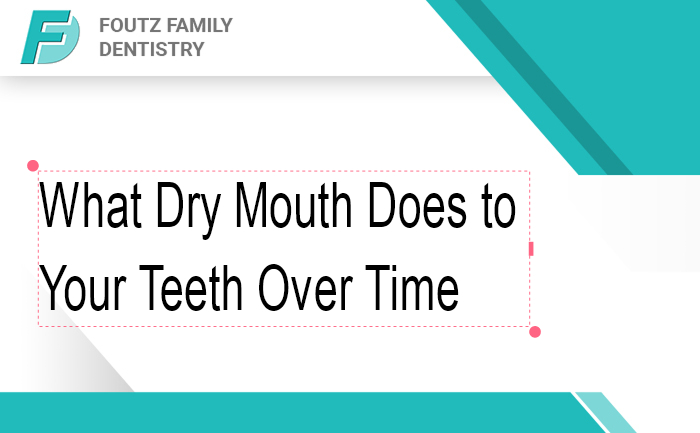
Did you know that your mouth is designed to stay moist? Saliva doesn’t just make talking and eating easier; it’s the built-in defense system that protects your teeth and gums. When your mouth dries out, even for a short period of time, you start to notice discomfort. And when it happens often, your oral health can suffer beyond feeling thirsty.
Chronic dry mouth, also known as xerostomia, is an annoyance that changes the environment inside your mouth. It creates perfect conditions for tooth decay and gum disease. However, understanding the role of saliva in oral health and spotting early problems can help you protect your smile in the long run.
Why Saliva Matters for Oral Health
Saliva is constantly at work in ways you may not notice. It washes away food particles, neutralizes harmful acids and bacteria, and carries minerals, like calcium and phosphate, to your teeth and gums to strengthen tissue and enamel. Without enough saliva, your teeth lose their natural shield against damaging germs.
Think of saliva as your mouth’s housekeeper and repair crew. Without it, your teeth and gums are left vulnerable. A healthy flow of saliva prevents plaque from hardening into tartar, making professional cleanings easier and reducing the risk of cavities developing in hard-to-reach crevices.
Short-Term Effects of Dry Mouth
At first, dry mouth may feel like stickiness on your tongue or difficulty swallowing. You might also notice bad breath, a dry throat, or changes in taste. These symptoms may seem harmless, but they’re signs that your mouth isn’t staying as clean as it should.
Lack of saliva, even short term, allows bacteria to multiply quickly. Plaque builds up quickly, and food acids will sit longer on your teeth. This sets the stage for cavities and gum inflammation.
Long-Term Damage to Teeth and Gums
When dry mouth persists, the risks are heightened. Enamel weakens, cavities form in places you’ve never had before (and may not notice), and your gums are more prone to disease that causes recession and bleeding. Because saliva also helps combat fungal growth, long-term dry mouth can lead to oral infections, like thrush.
Over time, gum disease can develop, and teeth may become sensitive and brittle, or they may loosen entirely from unchecked decay. What begins as uncomfortable, annoying dryness can eventually compromise your entire smile if left untreated.
How to Protect Your Mouth from Dryness
Managing dry mouth comes down to daily habits and professional care. For example:
- Drinking water (at least 64 ounces daily) helps tissues remain moist and rinses away bacteria.
- Sugar-free gums or lozenges encourage saliva flow.
- Avoiding tobacco, alcohol, and excessive caffeine will reduce dryness.
- Over-the-counter rinses add extra oral moisture.
If medications or medical conditions are the cause of your dry mouth, Foutz Family Dentistry may suggest targeted treatments or product prescriptions to protect enamel and alleviate oral irritation. Regular checkups are tantamount, since dentists can check for signs of damage and help prevent long-term complications.









